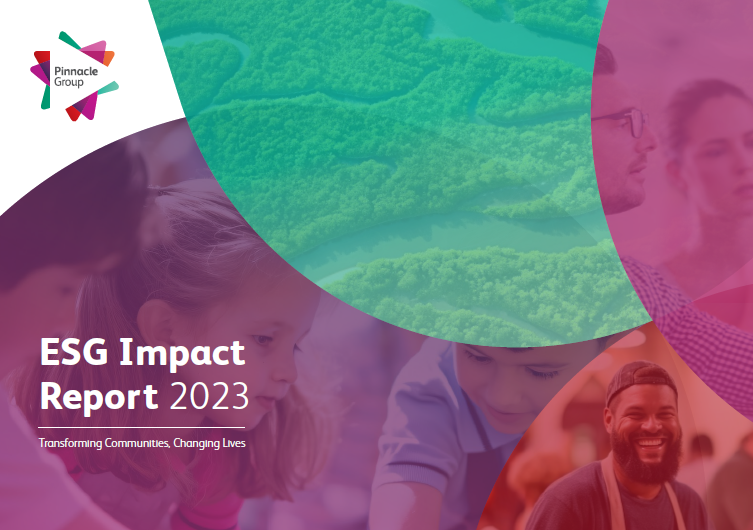Pinnacle Group Secures Major Contract with HOCHTIEF to Manage Over 1,000 New Student Rooms
Pinnacle Group has been selected as a key delivery partner for Staffordshire University’s new purpose-built student accommodation village at its Stoke-on-Trent campus.
This landmark project, which received planning permission in March, will feature approximately 700 new student rooms in blocks and townhouses centred around a vibrant social hub. The village is set for completion in 2026.
Under the 50-year contract with German construction giant HOCHTIEF, Pinnacle will deliver a comprehensive range of services to ensure the facilities are well-managed and foster a community that students are excited to call home.

HOCHTIEF has formed a consortium – Staffordshire Campus Living – with Staffordshire University and Plenary to deliver the project, with Willmott Dixon constructing the new buildings. This includes the refurbishment of 300 existing en-suite rooms, which will also be managed by Pinnacle.
Pinnacle Group Chief Executive Perry Lloyd said: “We have a long track record of successfully managing and maintaining places where people live, learn, work, and play. We are delighted our unique offering has led to a new partnership with HOCHTIEF. With our expertise and track record of service delivery, we look forward to managing a home away from home for so many Staffordshire University students.”
Sally McGill, Chief Financial Officer and Executive Lead for Sustainability at Staffordshire University, added: “The new Student Village is a significant step forward in enhancing our campus infrastructure. This development not only addresses the growing demand for high-quality student accommodation but also aligns with our sustainability goals. The partnership with Pinnacle and HOCHTIEF will help us create a vibrant and sustainable living environment that supports our students’ academic and personal growth.”
This contract is the latest in a series of new business wins for Pinnacle, which recently announced partnerships with Kew Green Hotels, Funding Affordable Homes (FAH), and an expanded role with Legal & General Affordable Homes (LGAH), becoming its leading managing agent.
Pinnacle team rewarded with prestigious military recognition
A number of colleagues working on Pinnacle’s Service Families contract have been recognised with a commendation from the Vice Chief of Defence Staff, General Dame Sharon Nesmith.
Conferred twice a year alongside the state honours, commendations are awarded to individuals and teams who have performed exemplary service to the Ministry of Defence.
Ben Leahy, Jolanta Mokrzycka, Ed Rigby, Barry Reynolds, Jas Patel, James Jamieson and Francesca Obertelli were awarded the honour for their work on the Afghan Relocations and Assistance Policy (ARAP), alongside colleagues from the Defence Infrastructure Organisation.

Pinnacle has supported the Ministry of Defence in mobilising the programme, with colleagues ensuring Afghan citizens – who supported the UK Government in Afghanistan – are safely moved into surplus military accommodation.
“We’re incredibly proud of our team, who have worked so hard on this programme and have truly earned this commendation. Individuals have gone far beyond the call of duty to support these families as they settle into life in the UK. Alongside those mentioned in the citation, recognition is extended to our Afghan Liaison Officers as well as our wider Strategic Estate Management, regional teams and sub-contractor, Pickfords.”

Claire Kober
Managing Director, Homes at Pinnacle Group
Team members are now set to attend a presentation at MOD main building, where they will be thanked in person by General Dame Sharon Nesmith.
Pinnacle starts work on first Cornish contract
Pinnacle Group has secured its first housing management contract in Cornwall, building on a series of new business wins and geographical expansions since the beginning of the year.
Pinnacle has now begun work with Perran Housing, a registered provider connecting local people with sustainable shared ownership or affordable rental homes.
Pinnacle will provide a full complement of housing management services, ranging from tenant on-boarding, building compliance, defect management, maintenance and void management. This work will cover the extent of Perran’s portfolio and reflects Pinnacle’s expertise and range of services in the space.
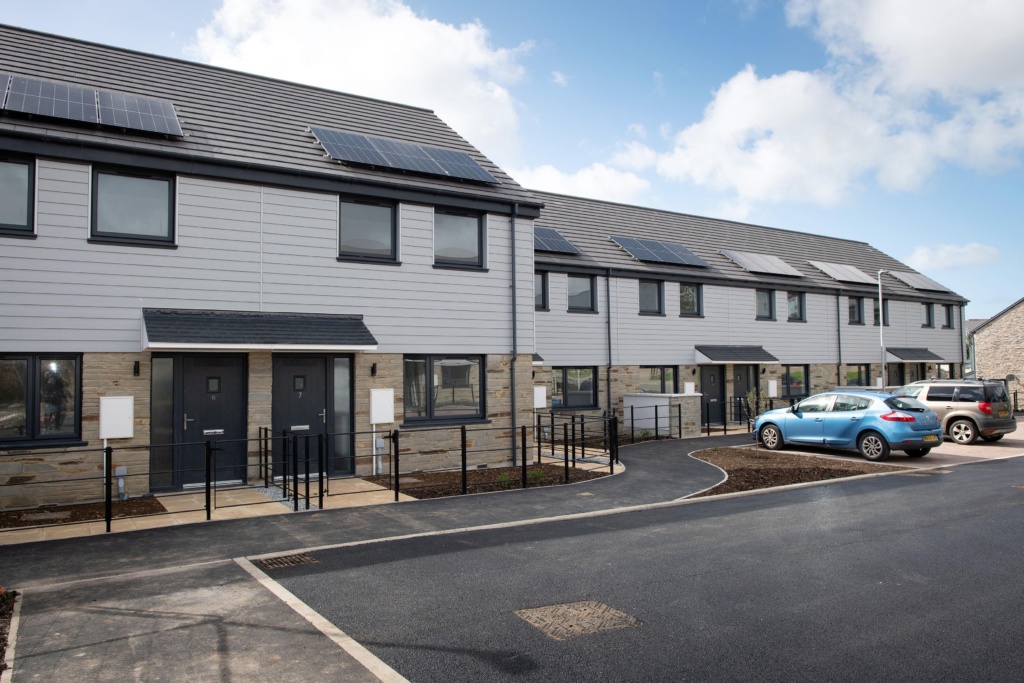
The contract marks the latest in a series of new business wins for Pinnacle, which also recently announced instructions with Kew Green Hotels, Funding Affordable Homes (FAH), as well as an expansion of its work with Legal & General Affordable Homes (LGAH), becoming its leading managing agent.
"With a series of new contract wins under our belt in recent weeks, we’re pleased our reputation for providing market-leading management services has resulted in yet another geographical expansion. We look forward to continuing and expanding our work with Perran as their pipeline delivers more homes to the people of Cornwall."

Claire Kober
Managing Director, Homes at Pinnacle Group
Launched in 2022, Perran Housing falls under the organisational umbrella of Treveth – a B Corp certified property development company set up by Cornwall Council in 2019 to create new homes, sustainable communities and commercial developments all of which benefit people who live and work in Cornwall.
The registered provider’s main objective is to improve the quality of new homes in Cornwall. Perran’s homes exceed current minimum standards and are designed to help to reduce the running costs for occupants, through the use of low carbon technologies.
Perran’s sustainable housing is carefully integrated into existing communities through the inclusion of walking and cycling routes, as well as measures to support the local ecosystem, such as hedgehog highways and bat boxes.
Dulcie Paleschi, Head of Residential Portfolio Management at Treveth says, “Perran Housing ensures Treveth remains responsible for managing all the affordable homes on our sites. This means that our affordable and private tenants benefit from Treveth’s high-quality service with a single point of contact.
“We are delighted to be working with Pinnacle and utilising their expertise to continue our mission to deliver quality and sustainable communities for local people in Cornwall."
Pinnacle Group’s Claire Kober on why for-profits are key for housing supply
Earlier this month, the Financial Times reported a stark warning from housing associations: “We can’t build houses.” Some said they had ceased all new development for the coming financial year; others said the system was “maxed out”.
A perfect storm of high interest rates, inflation, low government grants and rising construction costs, as well as net zero and remediation obligations, means traditional registered providers (RPs) are struggling to build. Put simply, the finances do not stack up. In fact, housing associations say building new affordable homes is becoming financially impossible, which is worsening the downturn in supply.
Alongside this, demand continues to grow. In 2022, there were 1.2 million households on social housing waiting lists. Statistics released last month show this has increased by 6% to 1.29 million. In 2021-22 alone, 173,550 households who received a social letting were new to the social sector. Meanwhile, households in temporary accommodation now number more than 109,000, with costs exceeding £1.74bn in 2022-23. Something has got to give.
What the FT piece neglected to mention was that for-profit RPs (FPRPs) are moving into the space and helping to bridge the gap. There are 69 FPRPs registered with the Regulator of Social Housing – two of these owned by Pinnacle. With this number continuing to rise, albeit at a slower pace, it is clear institutional investment’s role in the sector is vital and will continue to grow. There is a real opportunity for traditional RPs to support this growth.
In 2023, I was part of a working group, drawn from the British Property Federation’s (BPF’s) Affordable Housing Committee, that developed a toolkit to provide greater understanding of partnership models for investors and RPs. Its aim was to boost the delivery of affordable homes by providing greater understanding of how investors and housing associations can collaborate.
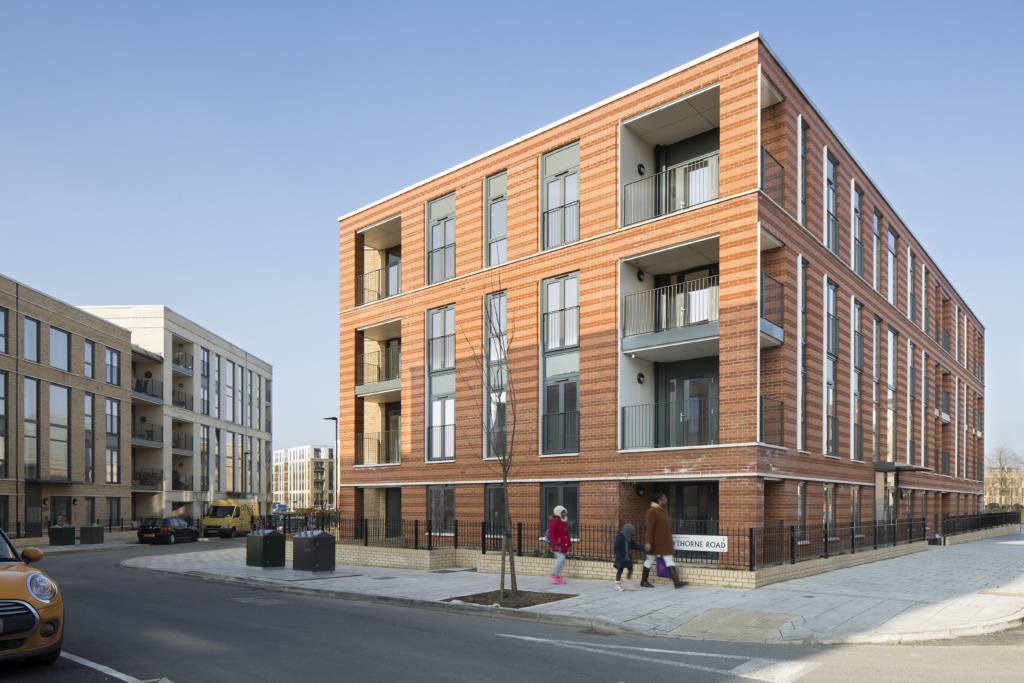
Encouragingly, a recent Savills survey of traditional housing associations revealed that 89% would consider a partnership with a for-profit and 43% are already working with them in some way. The ever-growing pressure on housing associations to find alternative sources of investment is shifting attitudes among traditional RPs. Five years ago, an earlier survey found that only 62% of traditional housing associations thought that for-profits had any part to play in solving the housing crisis.
It is clear there is a rapidly growing recognition of the role equity has to play in unlocking financial capacity. This collaboration is set to be key in the sector’s future growth.
Capital funding
Rapidly scaling up long-term institutional investment in the sector is vital to boosting affordable housing supply. Analysis by L&G and the BPF reveals that £34bn is the additional capital funding needed per year to meet demand.
But if we are to scale up, we must create the conditions to encourage private capital to enter the sector. These include longer-term rent settlements, a review into subsidy provision and the creation of a level playing field between traditional RPs and their for-profit counterparts. New tax and grant initiatives would remove obstacles for closer collaboration between institutional investors and RPs.
As the gulf between supply and demand broadens, the housing crisis is set to take centre stage in the upcoming general election. It is already shaping up to be a key battleground, with the industry and communities patiently waiting to hear how parties intend to address the issue should they retain or take power. Whichever party wins, they need to adopt a pragmatic approach, acknowledging the role institutional investment has to play in delivering the affordable homes the country needs.

Claire Kober
Managing Director (Homes), Pinnacle Group
This article was originally featured in Property Week, on 1st May 2024.
Pinnacle expands affordable homes contract – becoming Legal & General Affordable Homes’ leading managing agent
Pinnacle Group is set to more than double the number of homes it manages on behalf of Legal & General Affordable Homes (LGAH) as it becomes the provider’s leading managing agent.
In recent weeks, the housing services provider has taken on management services for an additional 900 homes – a mix of affordable rented and shared ownership – spread across the Southwest and Midlands, including The Berries in Paignton, Devon and Cross Trees Park in Shrivenham, Oxfordshire.
Now, a further 40 shared ownership homes at a variety of locations across England will be managed by Pinnacle after we signed yet another agreement with LGAH.

In total, Pinnacle will now be responsible for managing around 1800 homes for LGAH, with a pipeline of new properties expanding the portfolio to at least 2600 homes over the next few years.
“Having begun our relationship with LGAH back in 2019, we’re thrilled our reputation for providing market-leading housing services has resulted in us becoming their leading managing agent. With our teams already delivering on the ground for the first tranche of new homes, we now look forward to serving even more communities across the country as the additional homes come under our management.”

Claire Kober
Managing Director, Homes at Pinnacle Group
Pinnacle’s role will include tenant on-boarding and management, building compliance, defect management, maintenance and void management.
Pinnacle will also work in close collaboration with LGAH in advance of the handover stage, including liaising with relevant local authorities on nominations agreements and the production of welcome packs and home user guides for prospective tenants.
Shaun Holdcroft, Operations Director, Legal & General Affordable Homes, said: “Pinnacle is a trusted partner of Legal & General Affordable Homes, and we are proud to have formed a robust and long term relationship over the past five years. We look forward to working with the Pinnacle team as we continue to serve our current and future residents by providing high quality, affordable housing right across the country. Our aim is to better people’s lives and ensure that everyone has access to our vision of a sustainable and affordable home.”
As we approach our 30th anniversary, Pinnacle continues to see considerable growth, having recently announced a new instruction with Funding Affordable Homes as well as its first Brighton-based contract.
Pinnacle Group wins first Brighton contract to manage hotel apartments
Pinnacle Group has won its first Brighton-based contract to provide management services to residential apartments above an historic seafront hotel.
Kew Green Hotels, which owns and manages over 55 hotels across the world, has selected Pinnacle to manage sixty-four leasehold apartments in the building, which overlooks Brighton’s Grand Pier.
Kew Green Hotels’ portfolio covers several leading global brands including IHG Hotels & Resorts, Hilton and Marriott International, alongside managing several independent hotels and operating over 25 Holiday Inns under franchise across Europe.
The former Bedford Hotel, now Holiday Inn Brighton-Seafront, is an iconic landmark in the city, dating back to 1829. It counted Charles Dickens among its historic guests, though the current iteration of the building opened in 1967. Today, eleven floors of the hotel are used for luxury residential apartments.

"As we celebrate our thirtieth anniversary this year, we’re delighted to be expanding into Brighton, especially with such an iconic building.
This new contract represents yet another geographical expansion of our market-leading services, enabling us to deliver for local leaseholders while also exploring further opportunities in the region.
We look forward to working with our partner, Kew Green Hotels, to maintain high quality management standards and create a first-rate customer experience for the residents.”
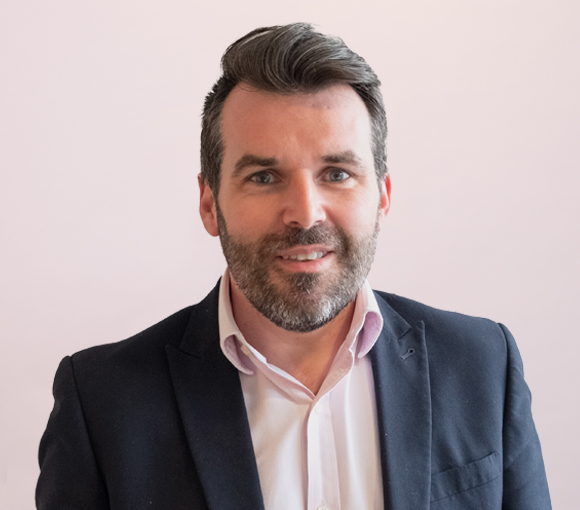
Alex Elsy
Director of Assets and Residential Management, Pinnacle Group
Alongside residential management of the apartments, which begins this week, Pinnacle will also work in close collaboration with the hotel team on shared building services.
This instruction is another example of Pinnacle’s vast experience in forging partnerships to deliver comprehensive community solutions. It will see the organisation deploy its unique expertise to respond effectively to client and customer requirements, particularly in complex residential developments.
Chris Dexter, CEO of Kew Green Hotels said, “We look forward to working with the team at Pinnacle, supporting them in delivering exceptional services to residents at Bedford Towers, complemented by the operational excellence delivered by our team at the Holiday Inn Brighton-Seafront. At Kew Green Hotels, we set ourselves apart by combining years of experience with innovative ideas to deliver outstanding hotel services, delivering exceptional returns for hotel owners and partners throughout our portfolio of independent hotels through to global brands.”
Shane Willmoth, Director of Property at Kew Green Hotels added, "We are pleased to be working with the team at Pinnacle, who demonstrate strong experience in the UK residential services sector with a robust infrastructure and employee community.”
Pinnacle Group secures new contract with Funding Affordable Homes
Pinnacle Group has been appointed by Funding Affordable Homes Housing Association (FAHHA), a for-profit Registered Provider and Homes England investment partner, to provide management services at a new-build home counties housing scheme.
Sterling Gardens, a development of 119 apartments, including 27 for social rent, 30 shared ownership and 62 for affordable rent, is built on brownfield land in Newbury.
Pinnacle will act as managing agent at the scheme, conducting a full range of tenancy and estate management. The contract marks a new relationship for Pinnacle, which currently provides housing management services across a portfolio of over 70,000 properties nationwide.
As it approaches its 30th anniversary, the Group continues to see considerable growth, with plans to announce further contract wins in the coming weeks.

Laura Newey, Head of Partnerships - Homes, Pinnacle Group, said: “We are delighted to have been appointed by FAHHA as their housing manager of choice on this exciting new scheme in Newbury.
‘Drawing on our experience of place-making, and place-keeping new communities on new build developments, we look forward to working with FAHHA to bring our market-leading services to the residents of Sterling Gardens.”
Paul Munday, CEO of FAHHA, said “FAHHA are hoping this project will be the start of a long-term relationship for the delivery of housing services by Pinnacle. Funding Affordable Homes (FAH), whose investment advisor is Edmond de Rothschild Real Estate Investment Management (EdR REIM), invested institutional capital alongside grant from Homes England to deliver 119 affordable homes from what was to be an entirely private sale development. The scheme demonstrates FAH’s commitment to providing tangible social benefit from its capital”.
Pinnacle Group strengthens board with appointment of high-profile Real Estate expert
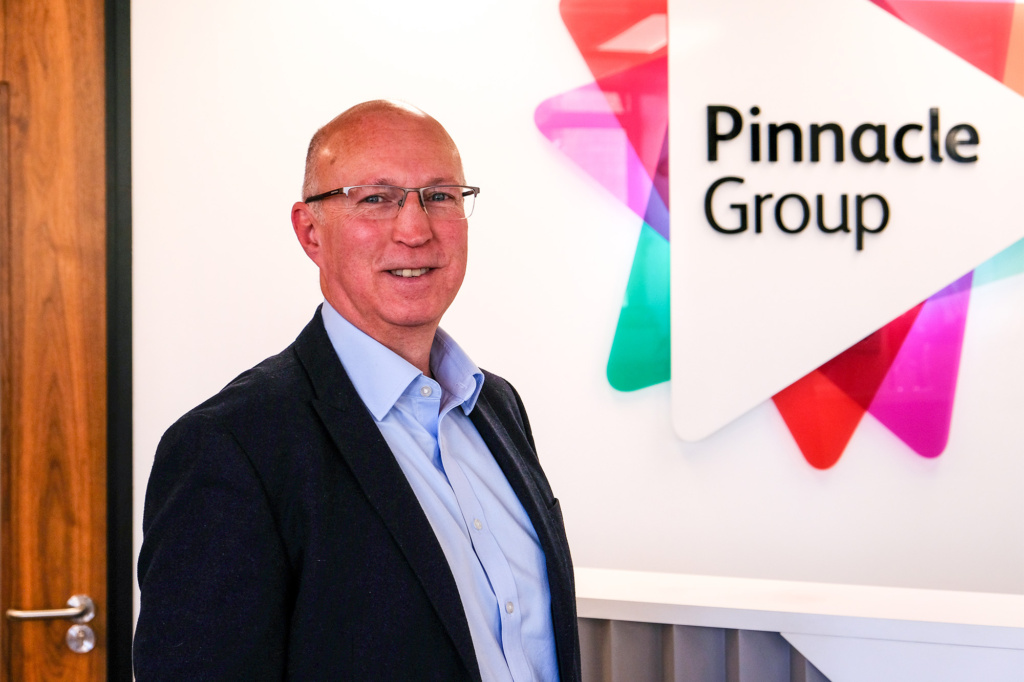
Pinnacle Group has announced the appointment of highly respected Real Estate investment executive, Phil Clark, to its board.
Phil has over 30 years’ experience in senior and non-executive roles at a number of established businesses in the residential, commercial, regeneration, infrastructure and energy sectors.
Starting his career as a surveyor in the public sector, he later moved to Aviva Investors, establishing and leading its specialist property investment funds team.
Following this, he spent 14 years at Aegon Asset Management becoming Global Head of Real Assets Equity where he had responsibility for direct and indirect, listed and non-listed investment strategies.
In 2000, he established the Igloo Regeneration Partnership, believed to be the first property investment fund to be focused on sustainable housing-led regeneration.

Perry Lloyd, Pinnacle Group Chief Executive, said: ‘Phil is a highly respected, commercially-minded real investment leader who brings a wealth of knowledge and delivery expertise to the Pinnacle Group board. His years of industry experience supplement the current skills and experience of the board and I look forward to working with him as we drive the business forward.’

Phil Clark said: ‘By joining Pinnacle’s board, I am looking forward to supporting a market-leading organisation that is determined to break new ground, particularly in the residential real estate space. I’m confident that, with its socially-conscious, commercial culture and strong leadership, we’ll leverage additional partnerships to make a positive difference to the communities Pinnacle supports.’
Alongside his role at Pinnacle Group, Phil is also a non-executive director for several active Real Estate businesses and chairs the Royal Institute of Chartered Surveyors’ Commercial Property Forum.
In addition to his professional credentials, he has a passion for accessible education. He is Chair of the Academy of Real Assets, a social enterprise that introduces the real estate and real assets industry to students who would not typically consider it as a career.
ESG Impact Report 2023

Our latest report detailing a series of key ESG pledge successes has today been published, highlighting our progress across the four key pillars of our ESG Framework.
Today we're pleased to publish our latest ESG impact report highlighting the exceptional service and positive difference we make to every community we serve.
This report not only celebrates our achievements but acts as a marker on our journey to net zero. This represents a substantial challenge but is one we welcome, and are making significant strides towards.
Over the course of 2022-2023, we are pleased to announce that our total emissions per £1m revenue has reduced by 8.7% year-on-year to 85.48tCO2e.
Pinnacle continues to be a socially conscious and value-led business, this is demonstrated through the exceptional achievements of our people in protecting our planet, the social investments in our team and culture, and the communities we serve.
Celebrating our people and culture at The Pinnacle Staff Awards 2023
https://youtu.be/COQnnPRJSEk
To celebrate the success of our team, on December 12th we held our annual awards ceremony, this year renamed to The Pinnacle Impact Awards, held at the Victory Services Club in London.
More than 160 Pinnacle Group employees attended the event, which was held in recognition of the hard work of Pinnacle colleagues throughout 2023.
On the night, a total of 34 finalists were celebrated from across all areas of the business, and over seven different award categories, designed to champion both teams and individuals. The nominations were all made by colleagues, who were encouraged to submit those who uphold Pinnacle’s core values of trust, respect, involve, challenge and deliver excellence.
Peregrine Lloyd, Chief Executive at Pinnacle Group, said: "The Impact Awards show our appreciation for colleagues who have embodied the spirit of what it means to be a Pinnacle employee. This year, it was wonderful to celebrate such inspiring achievements and recognise those who have positively impacted the communities we serve."
Congratulations to all of this year’s finalists and winners!
Employee of the Year - Abby Corker
One of the most highly anticipated awards of the evening is the Employee of the Year award. Each of our finalists is truly an asset to Pinnacle and we were thrilled to name Pinnacle Service Families, Helpdesk Team Leader Abby Corker, as the winner.
In her short time in the business, Abby has transformed the level of service and has also designed and written training packages for the service, supporting the team with coaching and mentoring as well as carrying out charity work, alongside challenging personal circumstances.

Congratulations to Abby and our other Employee of the Year Award finalists who have all achieved so much:
- Jenny Davies - AMSG Assistant Soft Services Support Manager
- Garry Price - FM Security Supervisor
- Shenka Pitts - Service Delivery Helpdesk Administrator
- Mark Varley - Supervisor on our FM Team
- Adrian Przybylski - Lead Caretaker on one of our Total FM Schools contracts
- Laurie Bone - FM Assistant Technical Services Manager
- Helen Regan - Housing Support Officer, Homes
- Hazel Joslin - Property Manager, Homes
- Anjali Patel - Marketing Executive
Manager of the Year - Jo Kerry
Manager of the Year is awarded for exemplary leadership and consistent dedication to creating a positive work environment for their team, which is aligned to the Group’s values. This year's winner was Jo Kerry, Head of Customer Experience, at Pinnacle Service Families.
Jo joined Pinnacle Service Families 12 months ago and quickly set up an initiative to challenge individuals within PSF to support the reduction of issues, whilst also looking at the compensation process and introducing a new system to make compensation payments simple and quick.
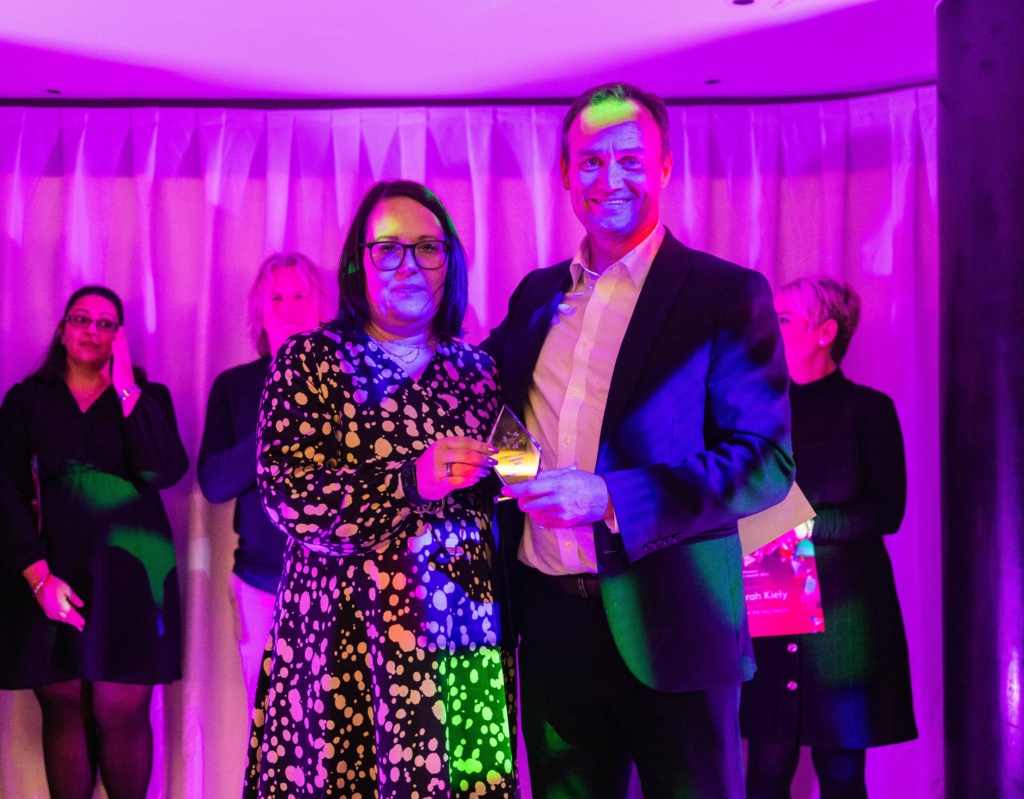
Congratulations to Jo and our other Manager of the Year Award finalists:
- Alexandra Agudelo - Area Housing Manager on our PFI Team
- Paul Marshall - Hard FM Manager
- Minal Hasiza - Contract Manager on our University of Hertfordshire contract
- Graham Harbron - FM Contract Manager
- Deborah Kiely - FM Contract Manager
Team of the Year - University of Hertfordshire
The Team of the Year is awarded for the demonstration of exceptional teamwork, innovation, and outstanding results that align with the Group’s values and objectives. A huge well done to the University of Hertfordshire team on winning this year's Team of the Year award.
Over the last 12 months, each team member has performed brilliantly both as individuals and as a team, fully embodying the Pinnacle values to achieve the position they are in today.
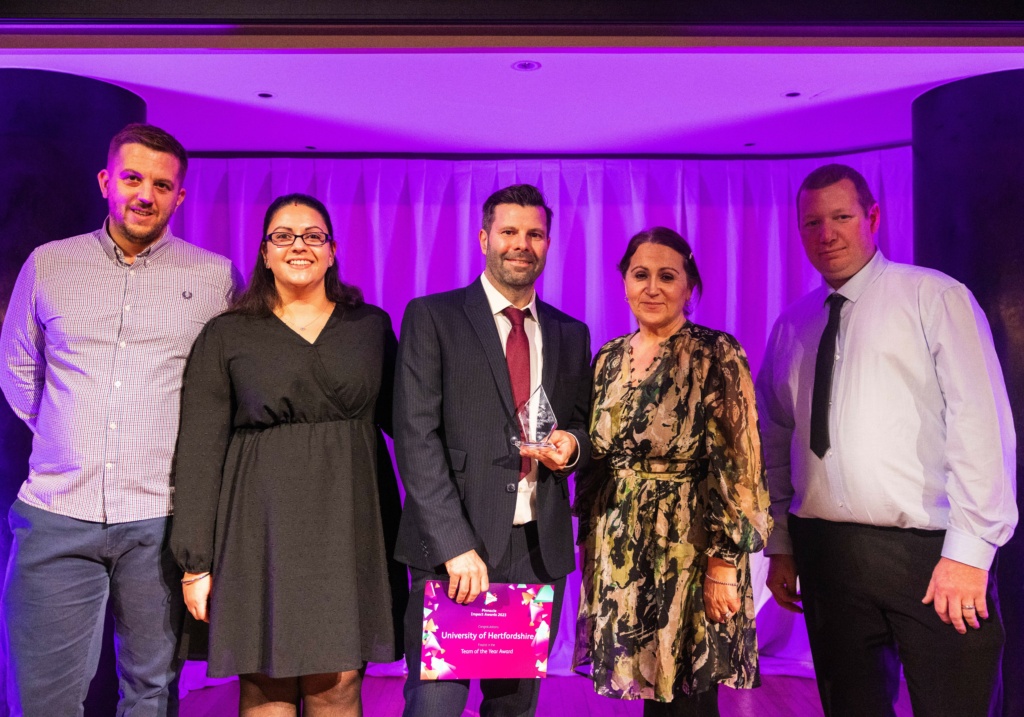
Congratulations to the University of Hertfordshire Team our other Team of the Year Award finalists:
- Myatts Field North Grounds Maintenance Team
- Toyota Deeside Team
- Pinnacle Service Families North Region Housing Team
- Ebbsfleet Academy Catering Team
- Pinnacle Service Families, Central Region Housing Team
Partnership Impact Award - Michael Cooper
The Partnership Impact Award recognises individuals or teams whose collaborative efforts have demonstrated exceptional impact, fostering strong internal or external partnerships and driving mutual shared success. Congratulations to Michael Cooper, Lifecycle & Variation Manager, for the Leeds & Kirklees Schools contract on winning the award.
The partnership relationship that Michael has developed at our PFI Schools in Leeds and Kirklees is nothing short of outstanding, delivering 4 major extensions / variations in the last 2 years alone.
Thanks to Michael, Pinnacle Group is seen by the Local Authority as a trusted partner delivering cost effective solutions in the Public Private Partnership (PPP) field.
Congratulations to Michael and our other Partnership Impact Award finalists:
- Ewelina Ciachorowska - Soft FM Team
- Leicester Homes Team
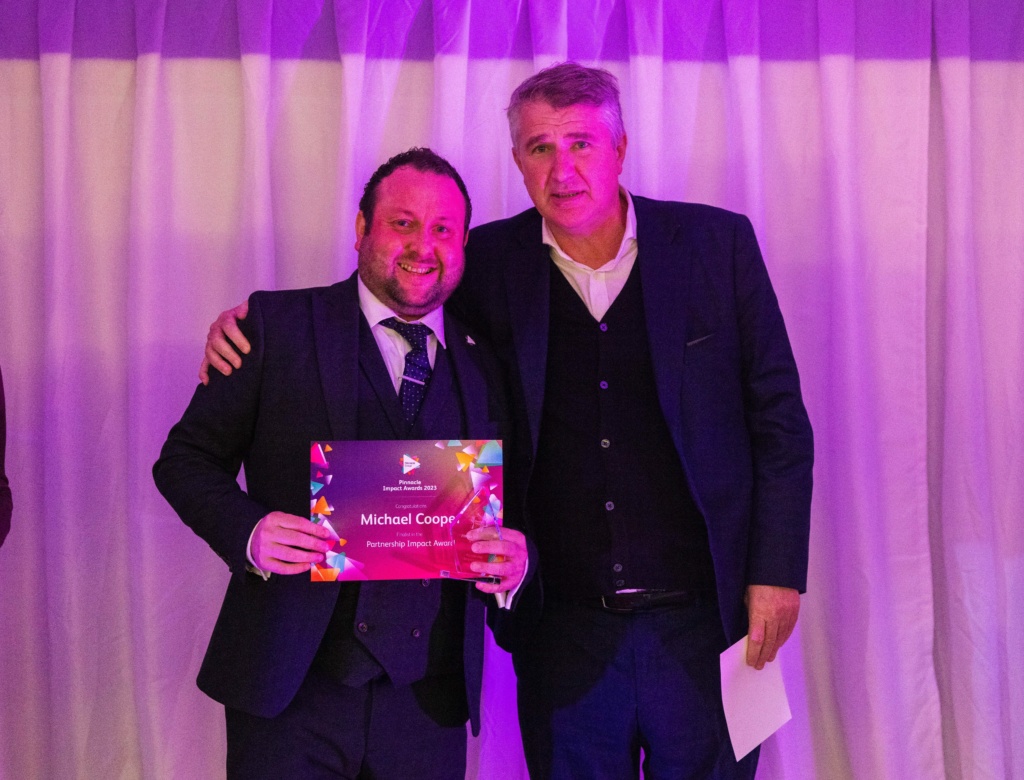
Customer Impact Award - Julie Impey
The Customer Impact Award is given for outstanding customer service, exceptional client relationships, positive feedback, innovative solutions, and contributions that enhance customer satisfaction. This year's winner was Julie Impey, Community Manager, from our Homes division.
Julie is truly at the front line of housing delivery, looking after a temporary accommodation facility called Newman Street. When new residents arrive, it is often a daunting experience, and Julie ensures everyone is warmly welcomed, offered clean bedding, kitchen utensils, clothes, and anything else that she has managed to get people or local businesses to donate.
Congratulations to Julie and our other Customer Impact Award finalists:
- Michelle Lee - Catering Manager at our Leeds Schools contract
- Pinnacle Service Families - Compensation Team
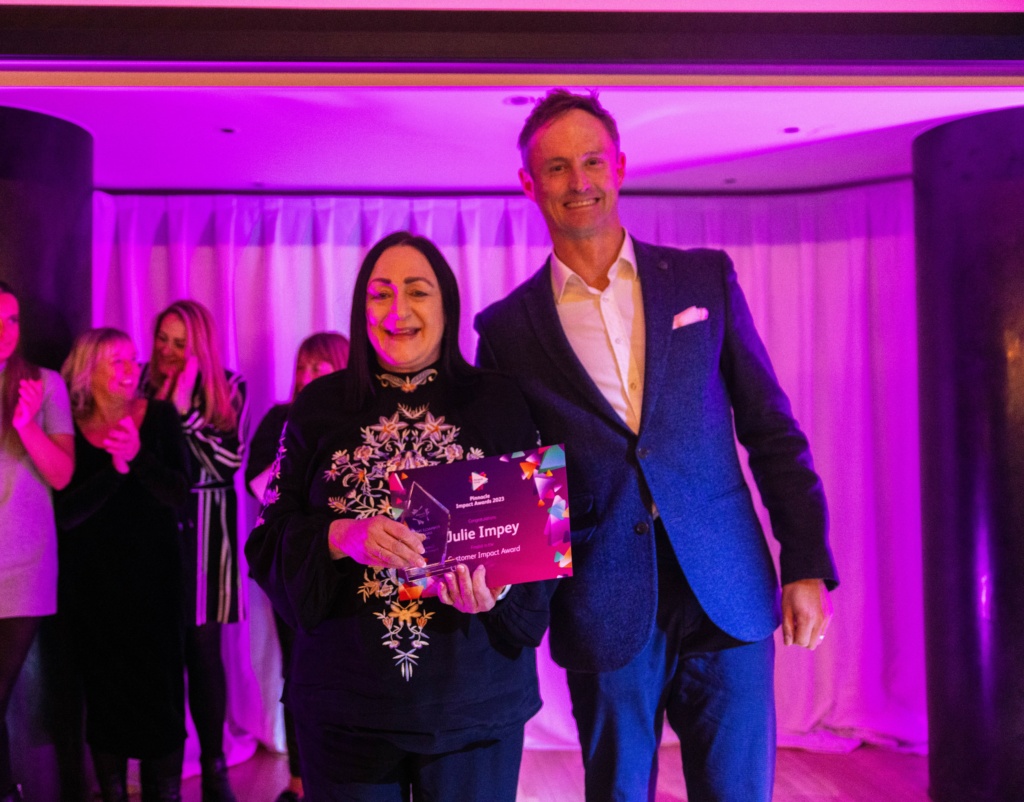
Community Impact Award - Leeds Office Senior Management Team
The Community Impact Award is given for the demonstration of outstanding positive contributions to our communities, aligned with the Group’s ESG objectives. Well done to the Leeds Office Senior Management Team on winning the Community Impact Award.
This dedicated group of individuals have been at the forefront of community initiatives for many years, consistently demonstrating their commitment to improving the lives of those around them, while continuing to deliver our School's PFI contracts.
The Senior Management Team would be the first to acknowledge the tremendous contributions of their teams, but they are the ones that truly make all this happen, year after year. Their tireless efforts, genuine care, and unwavering dedication to making a difference has left an indelible mark on our local communities.
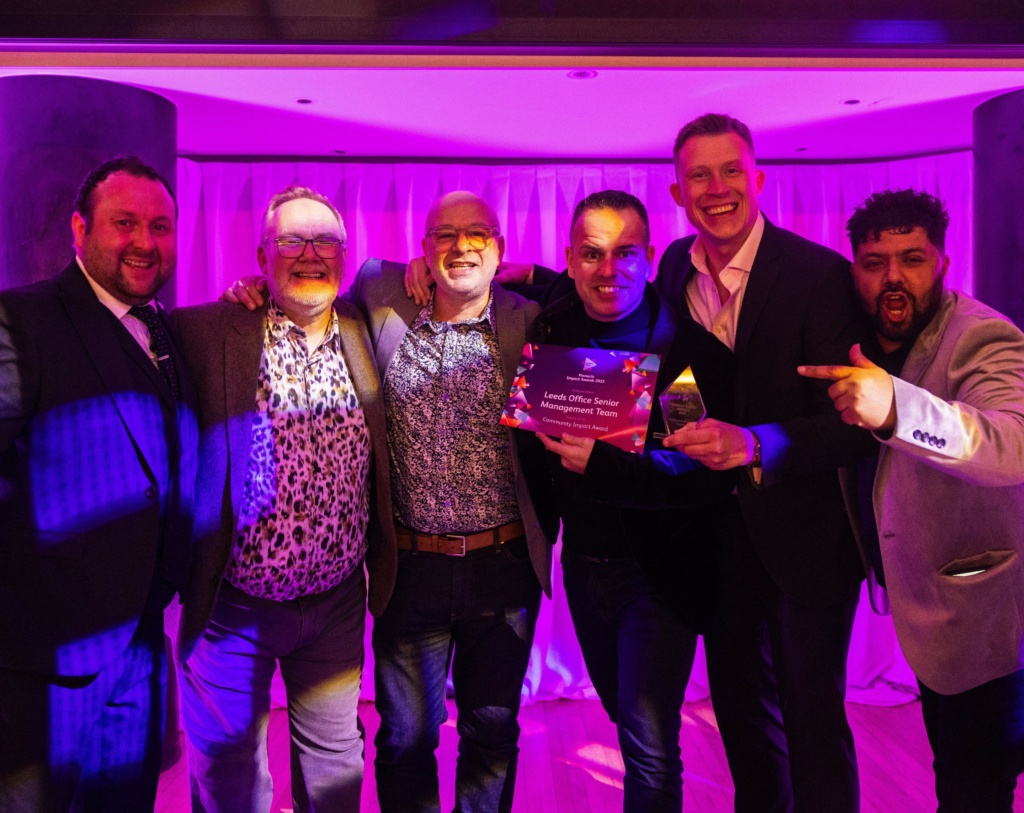
Congratulations to Leeds Office Senior Management and our other Community Impact Award finalists:
- North London Schools Team
- Sam Mason - Community Development Manager
Commercial Impact Award - Anna Le Jehan
The Commercial Impact Award is given for significant contribution to the Group’s commercial success, including impactful business insights and initiatives. Well done to Anna Le Jehan, General Counsel on receiving the Commercial Impact Award.
Anna’s exceptional understanding of contract creation is instrumental in Pinnacle’s commercial success, from protecting the business, to ensuring it is profitable.
From the smaller companies who may have little experience in procuring services to the large investment companies with teams of lawyers, Anna acts with complete professionalism, an outstanding amount of patience, and makes herself available, no matter what time of the day, to answer everyone’s questions.
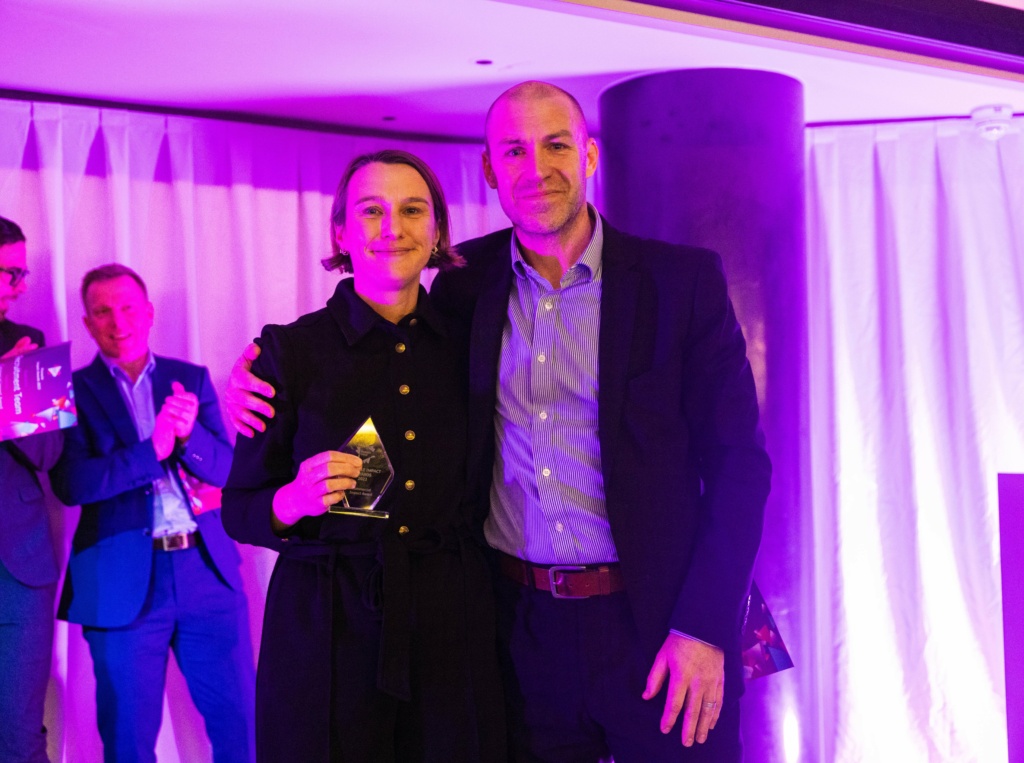
Congratulations to Anna and our other Commercial Impact Award finalists:
- Recruitment Team
- Elliott Tainton - Solutions Developer
Property Management 50 Awards Success for Leading Industry Influencer at Pinnacle Group
Rochelle Menville, Head of Operations (Homes) has been awarded a top spot in the 2023 Property Management 50 awards for leading the way in the property industry and being recognised as a top Influencer.

Rochelle is a CIH qualified Housing professional with over 18 years’ experience across social housing, leasehold and commercial management.
Rochelle said “It’s lovely to be nominated and be a Winner, and always nice to recognised for the work we do!”
Director of Assets and Residential, Alex Elsy, commented “I am so pleased that Rochelle that been recognised as an influencer in the 2023 PM50 Awards. It is well deserved recognition for all that she does both for Pinnacle Group and our clients, customers and the wider community.”
Congratulations to Rochelle and all of the other worthy winners. You can view the full list of winners here: 2023 Property Management 50 Winners

Combat Stress becomes Pinnacle Service Families’ charity partner
Pinnacle Service Families (PSF), part of Pinnacle Group, have chosen veterans’ mental health charity, Combat Stress, as their charity partner and will now embark on 12 months of awareness-raising and fundraising activities in aid of former service personnel with complex mental health issues.
Over the course of the next year, PSF is aiming to raise both awareness and vital funds to help support veterans on their road to recovery, as well as linking in with Combat Stress’ work to help veterans access its programme of career and self-employment coaching.
PSF is contracted with the Ministry of Defence to provide administration services for 49,000 service family homes, putting military families at the heart of what they do. With many of their own staff connected to the Armed Forces – either as partners, veterans or reservists – they understand the challenges individuals and families face. Some of the PSF team have themselves benefitted from Combat Stress’ support as they’ve battled mental health issues transitioning to civilian life.

As part of their broader work to support ex-service personnel, PSF provides a career and self-employment coaching programme, with tailored one-to-one mentoring sessions for ex-personnel, spouses, partners and their families.
Perry Lloyd, Pinnacle Group Chief Executive, whose brother had a long career in the Army and retired as a Colonel, said: “Having close family in the Armed Forces has given me a level of insight into the lifestyle and pressure families are under. Personnel put their lives on the line for us, so it’s right that we do whatever we can to provide the best service. I’m proud that we have a dedicated team who share my ambition to not only fulfil the obligations of the contract, but to go over and above in all that they do to support service families.
“It’s easy to write a cheque but – through a lasting collaboration with Combat Stress – we really want to support families more broadly to tackle the issues they face.”
Garry Burns, Senior Head of Corporate Partnerships and Events at Combat Stress, said: “On behalf of Combat Stress and the veterans we treat, I would like to thank Pinnacle Service Families for choosing us as their charity of the year.
“As the UK’s leading charity for veterans’ mental health, we provide specialist clinical treatment and support to veterans with complex mental health issues arising from military service. The support of staff at Pinnacle Service Families in raising money for, and awareness of, our charity will ensure we can help more veterans across the UK to rebuild their lives.”
